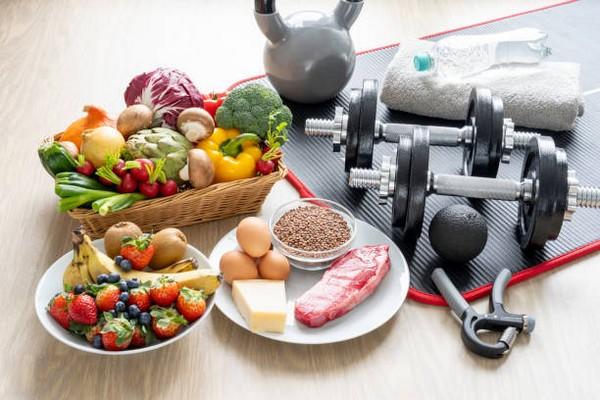Achieving a balanced 2000-calorie diet requires careful planning to ensure you get the necessary nutrients while meeting your calorie goals. Whether you’re maintaining your weight, building muscle, or ensuring overall health, here’s a detailed guide to help you plan your meals effectively.
Understanding Caloric Needs
Before diving into specific food suggestions, it’s essential to understand your body’s caloric needs. While 2000 calories per day is a common benchmark, individual requirements may vary based on factors like age, sex, activity level, and metabolic health. Consulting a nutritionist or using a reputable online calculator can help tailor your diet to your specific needs.
Balanced Diet Basics
A well-rounded diet consists of macronutrients (carbohydrates, proteins, and fats) and micronutrients (vitamins and minerals). Striking the right balance ensures you get the energy and nutrients needed for optimal health.
Breakfast Ideas
1. Oatmeal with Fruit and Nuts
Ingredients: 1 cup of oats, 1 banana, 1/4 cup of mixed nuts, 1 tbsp honey, 1 cup of milk.
Calories: Approximately 500 calories.
Benefits: Provides complex carbohydrates, fiber, healthy fats, and protein.
2. Greek Yogurt Parfait
Ingredients: 1 cup of Greek yogurt, 1/2 cup granola, 1 cup mixed berries, 1 tbsp chia seeds.
Calories: Approximately 400 calories.
Benefits: Rich in protein, probiotics, antioxidants, and fiber.
3. Avocado Toast with Eggs
Ingredients: 2 slices whole-grain bread, 1 avocado, 2 eggs, salt, pepper, and a squeeze of lemon juice.
Calories: Approximately 450 calories.
Benefits: High in healthy fats, fiber, and protein.
Mid-Morning Snack
4. Smoothie
Ingredients: 1 banana, 1 cup spinach, 1 cup almond milk, 1 tbsp almond butter, 1 tbsp flaxseeds.
Calories: Approximately 300 calories.
Benefits: Packed with vitamins, minerals, healthy fats, and protein.
Lunch Ideas
5. Grilled Chicken Salad
Ingredients: 4 oz grilled chicken breast, 2 cups mixed greens, 1/2 cup cherry tomatoes, 1/4 cup feta cheese, 2 tbsp olive oil dressing.
Calories: Approximately 500 calories.
Benefits: High in protein, healthy fats, and vitamins.
6. Quinoa Bowl
Ingredients: 1 cup cooked quinoa, 1/2 cup black beans, 1/2 cup corn, 1/4 cup diced avocado, 1/4 cup salsa.
Calories: Approximately 450 calories.
Benefits: High in fiber, protein, and essential nutrients.
7. Turkey and Cheese Sandwich
Ingredients: 2 slices whole-grain bread, 3 oz turkey breast, 1 slice cheddar cheese, lettuce, tomato, 1 tbsp mayonnaise.
Calories: Approximately 450 calories.
Benefits: Balanced mix of protein, carbohydrates, and fats.
Afternoon Snack
8. Apple with Peanut Butter
Ingredients: 1 apple, 2 tbsp peanut butter.
Calories: Approximately 250 calories.
Benefits: Provides fiber, healthy fats, and protein.
Dinner Ideas
9. Salmon with Brown Rice and Vegetables
Ingredients: 6 oz grilled salmon, 1 cup cooked brown rice, 1 cup steamed broccoli, 1 tbsp olive oil.
Calories: Approximately 600 calories.
Benefits: Rich in omega-3 fatty acids, protein, and fiber.
10. Stir-Fried Tofu with Vegetables
Ingredients: 1 cup tofu, 1 cup mixed vegetables (carrots, bell peppers, snap peas), 1 tbsp soy sauce, 1 cup cooked jasmine rice.
Calories: Approximately 500 calories.
Benefits: High in plant-based protein, vitamins, and minerals.
11. Beef and Vegetable Stir-Fry
Ingredients: 4 oz lean beef, 1 cup mixed vegetables (broccoli, bell peppers, onions), 1 tbsp teriyaki sauce, 1 cup cooked quinoa.
Calories: Approximately 550 calories.
Benefits: High in protein, fiber, and essential nutrients.
Evening Snack
12. Cottage Cheese with Pineapple
Ingredients: 1 cup cottage cheese, 1/2 cup pineapple chunks.
Calories: Approximately 200 calories.
Benefits: High in protein and essential vitamins.
Tips for Achieving a 2000-Calorie Diet
Plan Your Meals
Planning your meals helps ensure you meet your caloric and nutritional needs. Use a food diary or app to track your intake and make adjustments as needed.
Focus on Nutrient-Dense Foods
Choose foods rich in vitamins, minerals, and other essential nutrients. Avoid empty-calorie foods that provide little nutritional value.
Balance Your Macronutrients
Aim for a balanced intake of carbohydrates, proteins, and fats. Each macronutrient plays a crucial role in maintaining overall health.
Include Snacks
Healthy snacks can help you reach your calorie goals without overeating during main meals. Opt for nutrient-dense options like nuts, fruits, and yogurt.
Hydrate
Proper hydration is essential for overall health. Drink plenty of water throughout the day, and include hydrating foods like fruits and vegetables.
Adjust Portions
If you’re not reaching your calorie goals, adjust portion sizes. Increase the quantity of nutrient-dense foods like nuts, seeds, and healthy fats.
Listen to Your Body
Pay attention to hunger and fullness cues. Eating mindfully helps prevent overeating and ensures you’re getting the right amount of calories.
See Also: What To Eat On A Liquid Diet To Lose Weight
Sample 2000-Calorie Meal Plan
Breakfast
Oatmeal with Fruit and Nuts: 500 calories
Smoothie: 300 calories
Lunch
Grilled Chicken Salad: 500 calories
Snack
Apple with Peanut Butter: 250 calories
Dinner
Salmon with Brown Rice and Vegetables: 600 calories
Evening Snack
Cottage Cheese with Pineapple: 200 calories
Conclusion
Eating a 2000-calorie diet can be both satisfying and nutritious with careful planning. Focus on a variety of foods to ensure you’re getting the necessary nutrients while enjoying a diverse and delicious diet. By incorporating these meal ideas and tips, you can achieve your caloric goals and maintain a healthy lifestyle. Remember, it’s always best to consult with a healthcare provider or nutritionist to tailor a diet plan to your specific needs.


